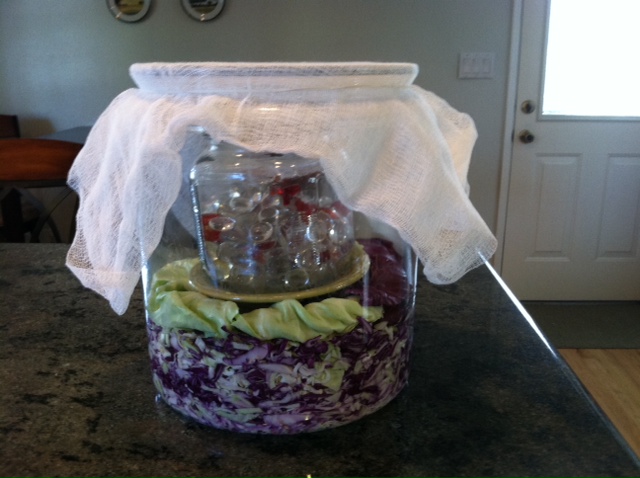So I got home from Whole Foods a while ago with a new container of Solaray Multidophilus, capsules of probiotics, which is basically acidophilus and some of its friends. I had mindfully protected the vulnerable little good bacteria (which is supposed to be refrigerated) with a bag of frozen brussel sprouts while I shopped. When I got home I was in a hurry; had to put the food away; had to eat a quick bite before going to work.
The next day about 24 hours later, I discovered that I had accidentally put the Multidophilus in the vitamin cupboard. Filled with dismay, because I had just spent $15 buying it, I called Solaray to ask if I needed to throw it out now. Fortunately our house probably maintained temperatures in between 68-72 degrees during that time. Happily, the Solaray rep informed me that the manufacturer puts in more bacteria than is stated to “insure adequate amounts after transport and other handling, so your product should be fine”. Whew! But it also answered other questions. Like can you take a probiotic capsule with a swig of hot coffee? Can you leave one on a napkin for a few minutes before ingesting? Obviously the answers would be that those are pretty safe risks deducted from the above info.
Here is a quick primer in probiotics. They are a friendly bacteria for the gut, balancing agents. Studies have shown that they are useful for/aid in:
- digestion
- immune function
- nutrient absorption
- improving diarrhea from rotavirus
- restoring balance of microflora in urogenital tracts
- preventing/managing eczema in children
- reducing negative effects from antibiotics
- reducing lactose intolerance
- reducing incidences of yeast infections
- promoting anti-tumor and anti-cancer activity in the body
- preventing and treating urinary tract infections
Side effects are nil to minimal. I have read that they can cause mild gas or bloating, but I have never noticed anything adverse and I have used them for years. However, individuals with immunosuppression or who have been taking immunosuppressants medications should consult their doctor before taking.
Incidentally, a few years ago my doctor had my stool, um, I hope you are not eating right now, tested for a bunch of things like parasites, presence of undigested food, bile production, bacteria, etc. This test showed that I had very little acidophilus in my gut, probably due to antibiotic use, so I was urged to supplement with it every day.
Incidentally, I rarely ever heard a medical doctor advising patients until recently, like in the last year, to supplement with a probiotic while taking an antibiotic in order to replace the good bacteria that the antibiotic is killing along with the unwanted bad bacteria. Sometimes I hear the doctors say to take a capsule or eat some yogurt with live cultures, I always tell the patients when I have the opportunity capsules with at least 6 billion microbes and to take them at least two hours apart from the antibiotic or else the antibiotic will kill the probiotics. And to continue this for at least one to two months after the antibiotics are finished twice daily. However, I think it is becoming more clear from research that most of us can benefit from probiotic supplementation on a continual basis.
I am frequently asked where to get probiotics. I know that Costco and drug stores carry them, and I think regular grocery stores might as well, but I always get mine from Whole Foods or Lassens in the refrigerated supplement section because they are alive and I just figure that what I get will be higher quality. I used to buy Solaray brand, but switched to Jarrow-Dophilus (10 billion per capsule) and Ultimate Flora (50 billion per capsule) depending what I think my needs are. And then I take them one to two times daily; only once daily with the higher doses, or if I am getting probiotics from another source like water kefir.
I am learning more and more the importance of probiotics and different ways to get them in my body, not only from capsules, but also apple cider vinegar (that has the mother, like Bragg brand), kefir, water kefir (see recipe in menu bar above), kombucha, and fermented vegetables like homemade sauerkraut. I just made a batch of the latter with the help of my daughter Lindsay. This exciting development will be shared in a post soon, but here is a picture taken on the day we made it. Now, pretty much all we have to do is wait 10 days or so for the batch to adequately ferment.

Happy bacteria consumption!

Hmmm, I was eating actually 8-.
Another side note to taking acidophilus is something you told me, but is good to pass on to those reading this, and that is, to take it on an empty stomach. I used to always take it with, so now I've switched. Thanks for sharing your wealth of knowledge!
I tried making sauerkraut, but the cabbage did not stay submerged and it got brown. Looking forward to your results.